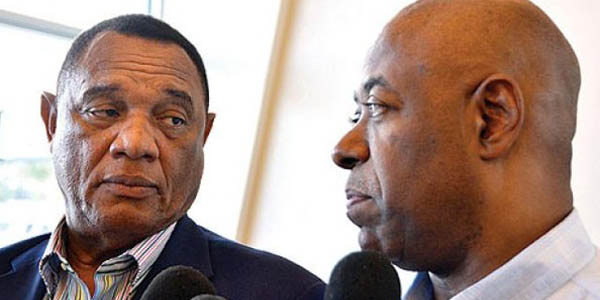
28th January 2014
Let me first thank our hosts and our neighbour Cuba and its President Raul Castro for the excellent reception which I have received along with my delegation at this conference. The arrangements are excellent. The hospitality is warm and friendly. Thank you Mr. President.
Today, we meet as a hemisphere and a region. We represent hundreds of millions of people and the hopes, dreams and aspirations of those millions. I am proud to represent the people of the Bahamas who though relatively small in number, our hopes dreams and aspirations rank with all the people of this hemisphere and throughout the globe. We all want a better way of life. We want a life of fairness, rationality, equality and equity. That is not too much to ask. It is not too much to hope for.
The issues of the day are all represented in the draft declaration and plan of action which we intend to adopt at the end of this summit. It seeks the protection of our fragile environment and planet; a sustainable way of life for the people of the region; a life of peace and prosperity for all of our citizens. It looks to special attention for the less fortunate: the aged, the infirmed, the disabled, our children. It seeks to protect the rights of women and affirms the principles of equality for all.
The Bahamas is therefore pleased to be a part of this forum. We eschew any rigid ideological orthodoxy in favour of a practical foreign policy: one which seeks to be friends to all who would be friends with us, with a shared set of goals and common human values. We have called it in another forum “functional cooperation.”
We come here as part of the Caricom context. In that context, we seek to bring attention to the vulnerabilities of small island developing states. The issue of climate change is front and centre for all us. The Bahamas is vulnerable to storms and floods being low lying islands. In the southern Caribbean, the island nations of St. Vincent and the Grenadines, St. Lucia and Dominica, there was great devastation and loss of life with the serious flooding that occurred in those countries just before Christmas. By one estimate, in the space of five hours, St. Vincent lost 15 per cent of its gross domestic product (GDP). How does a country withstand such a shock? What responsibilities do we have to respond to such emergencies?
We must, in the short term, respond with all the emergency aid that we can. That is why we were recently interested in proposals advanced by Panama for a humanitarian centre in Panama as a storage place and staging area for responding to these emergencies. However, in the longer term, summits like this must find practical solutions to issues of this nature. One of those solutions is to continue to sensitize the developed world to their responsibilities to ameliorate the conditions which have led to the climate changes that we are now seeing and experiencing.
The Bahamas is pledged to support those efforts in this and other fora.
I wish also to identify with the outreach to vulnerable groups. Our Social Services ministry is engaged, as we speak, in a consultation with civil society on legislation meant to enhance the lives and status of the disabled. This will be revolutionary in nature. We are also in the midst of changes to our support system for those who are unable to care for themselves. This should make processes fairer, more equitable and more humane.
All of what we say and plan to do here will be of no effect if we do not have the resources to pay for what we intend to execute. That is why, whatever we do here, must be underpinned by sound economic policies. The Bahamas is challenged like every country in the hemisphere with the issues that have followed on from the recession and economic crash of 2008. We are slowly but surely managing our way out of the crisis. However, I would be remiss if I did not seek the support of colleagues here for a more rational approach to international tax matters and to seek the support of this summit for a world order that recognizes that tax competition is a necessary and indispensable adjunct to free and fair trade. This tax competition has enabled a good way of life in many small island developing states, and the fact that the playing field is increasingly no longer level is threatening the middle class of our societies, which was able to develop on a set of rules that are now being undermined without consultation.
I also speak up for the development of sustainable tourism. I started this intervention talking about our environment and the need for sustainable development. It is no secret that the economy of The Bahamas is dominated by tourism. The environment supports that industry. We are committed to protecting the environment. It is for us a matter of survival.
I am pleased that the summit has adopted the special declaration on the issue of Illegal, Unregulated and Unreported Fishing. We are increasingly concerned about the encroachment into our country by illegal fishing. We are working on bilateral solutions. However, it is important for this forum to embrace this as an issue and we thank all member states for their support on this issue.
Finally, I wish to address the issue of migration. This is perhaps the most vexing issue which faces The Bahamas with its neighbours. The solutions are not unilateral. We, in the receiving state, see our resources being sorely taxed by this issue. We believe that the sending states have an obligation to ensure that there is not unregulated migration from their borders and will be working aggressively to pursue agreements by which states recognize that this is for the good of all and necessary to a sustainable and secure future.
The draft seems to be a sensible compromise on a number of different issues. We support the draft and commend it to the summit and to our nations and our people.
end






